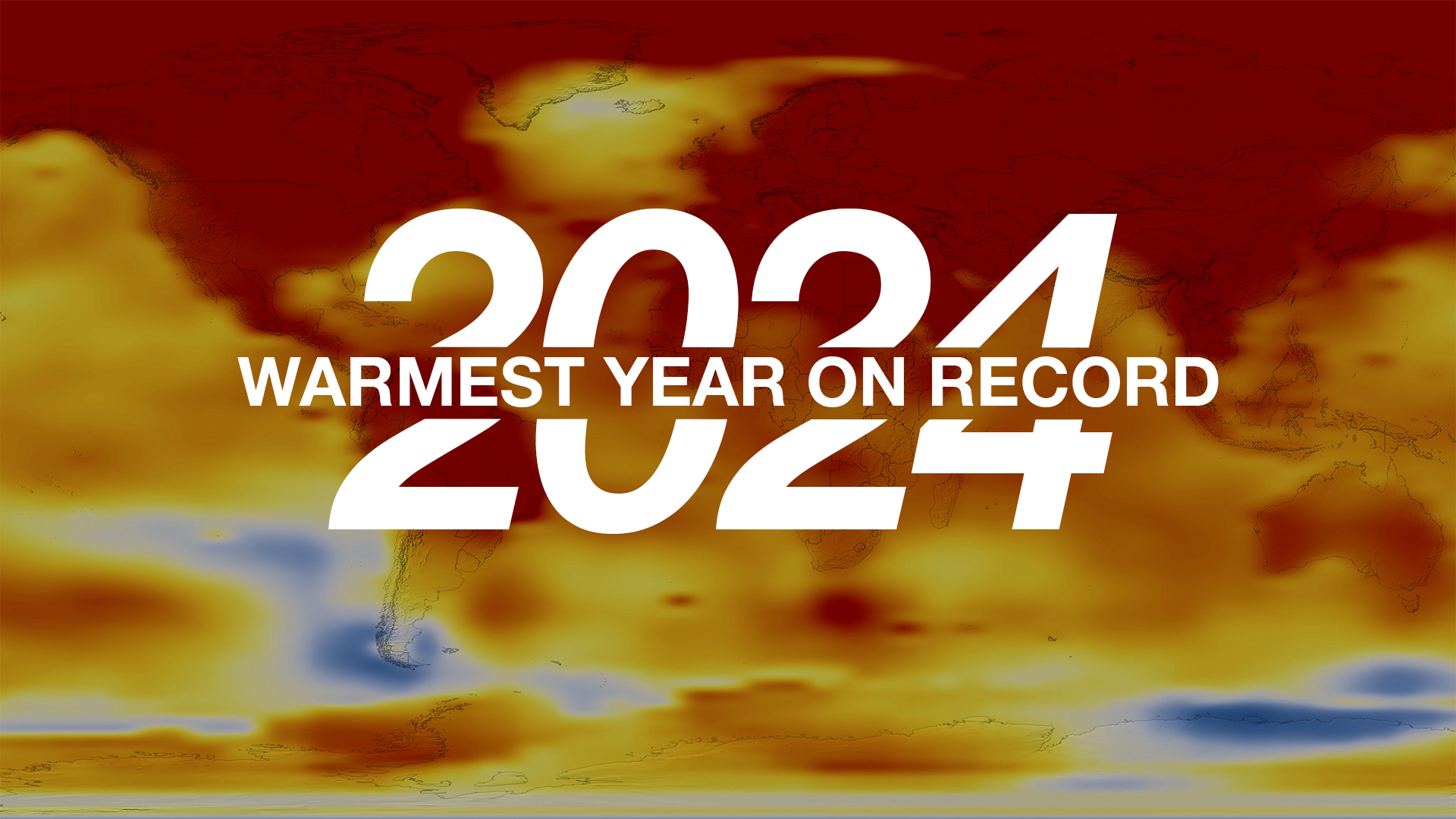NASA & NOAA Interview Opportunity: Snapshot of Earth in 2024 Through Temperature Live Shots

Find out more about the 2024 global temperature update here: Temperatures Rising: NASA Confirms 2024 Warmest Year on Record
On Friday, Jan. 10 at 11 a.m. EST, NASA and NOAA will release the 2024 assessment of global temperatures. Click here NASA, NOAA to Announce 2024 Global Temperatures, Climate Conditions for more information about the media briefing.
Live interviews are available in English and Spanish
Click here to request an interview: https://forms.gle/BkULCY4GpvmKzbGY9
Requests sent via the above form will have scheduling priority.
Please do not email requests.
On Friday, Jan. 10, NASA and NOAA will release their annual assessment of global temperatures for the previous year. Where did 2024 fall in the record books?
NASA and NOAA scientists are available for one-on-one interviews on Friday, Jan. 10 from 12 p.m. - 4 p.m. EDT to share with your viewers where 2024 fell in the climate record books, and what it means for the future.
Each year, NASA and NOAA undertake the huge task of measuring the average temperature of Earth, using land and sea surface measurements from tens of thousands of weather stations, ships and ocean buoys across the globe. Understanding these long-term changes is vital to how we interact with our environment, from planting different crops to managing water resources, to predicting the strength of hurricanes.
Suggested Anchor Intro:
Americans across a large portion of the country rang in the new year with lots of snow. As we head into 2025, let's take a brief pause and look back at 2024.
Today NASA and NOAA released their annual global temperature outlook, and here to tell us about how 2024 temperatures compare to previous years is NASA/NOAA expert XX.
Suggested Questions:
1. NASA and NOAA just announced the latest global temperature data for 2024. Where does 2024 rank in the climate record?
2. We’re in the [select region], how are these global changes impacting us where we live?
Northeast / Mid-Atlantic
Southeast / Gulf Coast
Midwest
West / Southwest
Pacific Northwest
International
3. Scientists now have more data than ever before about our home planet from two new satellites that launched in 2024: NASA’s PACE satellite that’s focusing on our oceans and atmosphere, and NOAA’s most advanced GOES weather satellite. How do these satellites work together to help us understand our climate and weather?
4. How do you take the temperature of Earth, and how do you monitor climate over such a large scale?
5. What do we expect to see in the future in terms of heat and these global events?
6. Where can our viewers learn more? [@NASAEarth]
Questions for longer interviews:
7. When you think of NASA images, astronauts on the International Space Station or distant galaxies captured by the James Webb Space Telescope may come to mind. But studying our planet Earth is also a top priority. Why does NASA (or NOAA) study the Earth?
8. NASA’s next Earth science mission launching is NISAR. How will it help us understand our home planet?
9. What Earth science are you most excited to tackle next?
NASA & NOAA Interview Opportunity:
Snapshot of Earth in 2024 Through Temperature Live Shots
BROLL PACKAGE
Pre-recorded interview with Dr. Kate Calvin / NASA Chief Scientist. TRT 2:39. Full transcript available under the download button.
Answers the following questions:
1. NASA and NOAA just announced the latest global temperature data for 2024. Where does 2024 rank in the climate record?
2. Scientists now have more data than ever before about our home planet from NASA’s PACE satellite that’s focusing on our oceans and atmosphere, How do these satellites help us understand our climate and weather?
3. What do we expect to see in the future in terms of heat and these global events?
4. Studying our planet Earth is a top priority for NASA. Why does NASA study the Earth?
5. NASA’s next Earth science mission launching is NISAR. How will it help us understand our home planet?
For More Information
See the following sources:
Credits
Please give credit for this item to:
NASA's Goddard Space Flight Center
-
Producers
- Michelle Handleman (eMITS)
- Angel Kumari (NASA/GSFC)
- Gloriana Wills (eMITS)
- Maria-Jose Vinas Garcia (Telophase)
- Noelia Gonzalez Moreira (ADNET Systems, Inc.)
-
Technical support
- Aaron E. Lepsch (ADNET Systems, Inc.)
-
Editor
- Grace Weikert (eMITS)
Release date
This page was originally published on Tuesday, January 7, 2025.
This page was last updated on Friday, January 10, 2025 at 2:28 PM EST.
